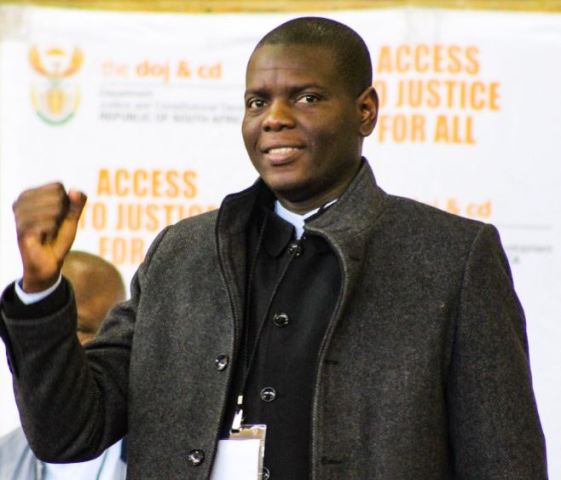Lamola Calls for G20 Solidarity, Equality and Sustainability Under SA Chair
Lamola said the presidency is inspired by the African philosophy of ubuntu and aligned with the United Nations’ commitment to “Leaving No One Behind.”

- Country:
- South Africa
South Africa’s International Relations and Cooperation Minister, Ronald Lamola, has reaffirmed the country’s leadership role in the Group of 20 (G20), urging member states to commit to solidarity, equality, and sustainability as guiding principles for inclusive global growth.
Lamola delivered his remarks at the International Peace Institute’s (IPI) annual event, held on the sidelines of the 2025 United Nations General Assembly (UNGA) in New York. The forum, co-hosted by South Africa and the IPI, focused on Africa’s role in shaping the global order and the G20’s evolving responsibilities.
Ubuntu as the Guiding Philosophy
As current Chair of the G20, South Africa has positioned its presidency under the banner of “Solidarity, Equality and Sustainability.” Lamola said the presidency is inspired by the African philosophy of ubuntu and aligned with the United Nations’ commitment to “Leaving No One Behind.”
He emphasised that South Africa’s leadership aims to ensure the G20 remains responsive to the needs of both developed and developing nations, particularly those in the Global South.
Four Overarching Priorities
Lamola identified four key priorities guiding South Africa’s G20 Presidency:
-
Strengthening disaster resilience to protect vulnerable nations from climate and natural crises.
-
Ensuring debt sustainability for low-income countries, giving them room to invest in development.
-
Mobilising finance for a just energy transition, supporting developing economies in balancing climate goals with growth.
-
Harnessing critical minerals to drive inclusive, sustainable growth while safeguarding against exploitation.
“These priorities speak directly to the structural challenges facing Africa and much of the developing world,” Lamola told delegates. “We cannot normalise exploitation, inequality, and poverty. Our responsibility is to shape a global order that uplifts all people.”
Collective Action and Global Responsibility
Lamola called on G20 members to demonstrate collective stewardship in tackling pressing global challenges. He noted that solidarity is not just a moral imperative but an economic necessity in an interdependent world.
“We have a shared responsibility to raise ambition, to provide stewardship, and to secure tangible outcomes for future generations,” he said.
Building on Recent Multilateral Efforts
The Minister pointed to recent international agreements, including the Seville Commitment on Financing for Development, as important steps toward more equitable global governance. He also highlighted two upcoming milestones—the COP30 Climate Conference and the World Summit for Social Development—as critical opportunities to advance global consensus on sustainability and inclusive development.
South Africa’s Global Role
South Africa’s G20 Presidency builds on its longstanding role as both a voice for Africa and a bridge between developed and developing economies. Lamola said the country will continue to use its position to advance African priorities, while reinforcing global cooperation at a time of mounting geopolitical and economic tensions.
“South Africa is committed to ensuring that our G20 Presidency leaves a legacy of stronger multilateralism, greater inclusivity, and shared prosperity,” Lamola said.
Next Steps at the UN
Following his remarks at the IPI forum, Lamola is expected to participate in the G20 Foreign Ministers’ Meeting at the UN, where discussions will focus on global economic challenges, debt relief, and financing for sustainable development. His participation underscores South Africa’s intention to play a proactive role in building consensus among the world’s leading economies.










